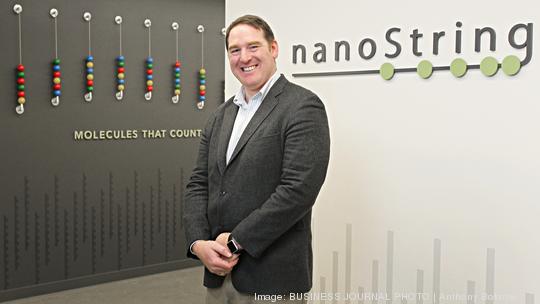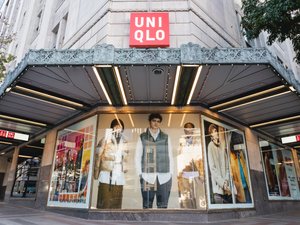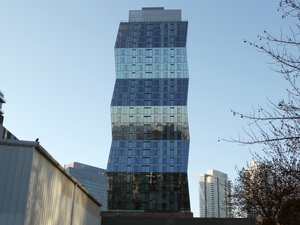
Scientific instrument company Bruker Corp. (Nasdaq: BRKR) on Monday closed its $392.6 million acquisition of Seattle-based research device maker NanoString Technologies.
The acquisition marks the close of a chapter for NanoString that began in February, when the company filed for Chapter 11 bankruptcy protection. With the acquisition closed, Bruker said in a regulatory filing NanoString CEO Brad Gray and CFO Thomas Bailey have been terminated.
"We have found in Bruker a wonderful home for the enterprise so many people worked so hard to build. I know our customers will be well cared for, and my colleagues will continue our mission," Gray wrote in a LinkedIn post Tuesday.
The regulatory filing also noted Joseph Beechem, NanoString's chief scientific officer, is taking a new role with Bruker. The company didn't immediately say who would be replacing the senior leaders. Gray led the company as CEO for 14 years. Bailey had been NanoString's CFO for more than six years.
Related coverage
NanoString in March had struck a deal to be acquired by a different company, the health care investment firm Patient Square Capital, for $220 million. Patient Square made its offer as a "stalking-horse" bidder, or an entity that puts in a preliminary offer to set the low-end bidding bar.
Bruker submitted a qualifying bid in April, which led to an auction that drove up the price. Bruker and NanoString first announced the deal between the two companies on April 17. At the time of that announcement, NanoString said its business will no longer be subject to bankruptcy proceedings once the deal closes.
Bruker is headquartered in Billerica, Massachusetts. The 64-year-old company makes a variety of scientific instruments, including microscopes, diffractometers and semiconductor manufacturing products. Bruker generated $721.7 million in revenue during the first quarter, up 5.3% year over year.
NanoString has been fighting patent litigation from competitor 10x Genomics, which sued NanoString in the U.S., Germany and the European Union’s Unified Patent Court (UPC). The February bankruptcy filing stopped all ongoing patent litigation against NanoString, which has since raised $47.5 million in debtor-in-possession financing.
NanoString, founded in 2003, makes high-powered, high-tech imaging and research tools. The company also makes software and analysis tools. Pleasanton, California-based 10x, a 12-year-old company, also makes imaging tools, as well as software and analysis tools. Gray at the time of the bankruptcy filing called the decision “a direct result of the extraordinary campaign of litigation instigated by 10x Genomics.”
In November, 10x announced a jury in the U.S. District Court for the District of Delaware found in favor of 10x in a patent lawsuit, awarding 10x more than $31 million in damages. NanoString released a statement saying it plans to appeal the decision, a process that usually takes 12 to 18 months.
In September, the UPC issued a preliminary injunction blocking sales of some NanoString products in the 17 UPC countries, but NanoString in February announced the UPC Court of Appeal had overturned the preliminary injunction. The case is awaiting a full hearing. When the preliminary injunction was overturned, a NanoString spokesperson said the company will know more about future dates for the case once NanoString exits restructuring.
A 10x spokesperson said in a statement NanoString's new parent company "doesn't change the fact that multiple NanoString products have been found to infringe multiple 10x patents in multiple jurisdictions around the world. We look forward to resuming these cases so we can protect our intellectual property portfolio."
Gray previously told the Business Journal the blocked sales in Europe represented about 10% of NanoString’s overall revenue. Its legal bills are “many millions of dollars,” he added, and that money would otherwise go into product innovation.
NanoString announced layoffs in October and January. The company planned to have just over 500 employees after its most recent round of layoffs.
10x has also filed patent lawsuits against Cambridge, Massachusetts-based biotech Vizgen, Palo Alto, California-based Curio Bioscience and Seattle-based Parse Biosciences.
For more stories like this one, sign up for Seattle Inno newsletters from the Puget Sound Business Journal and the American Inno network.








